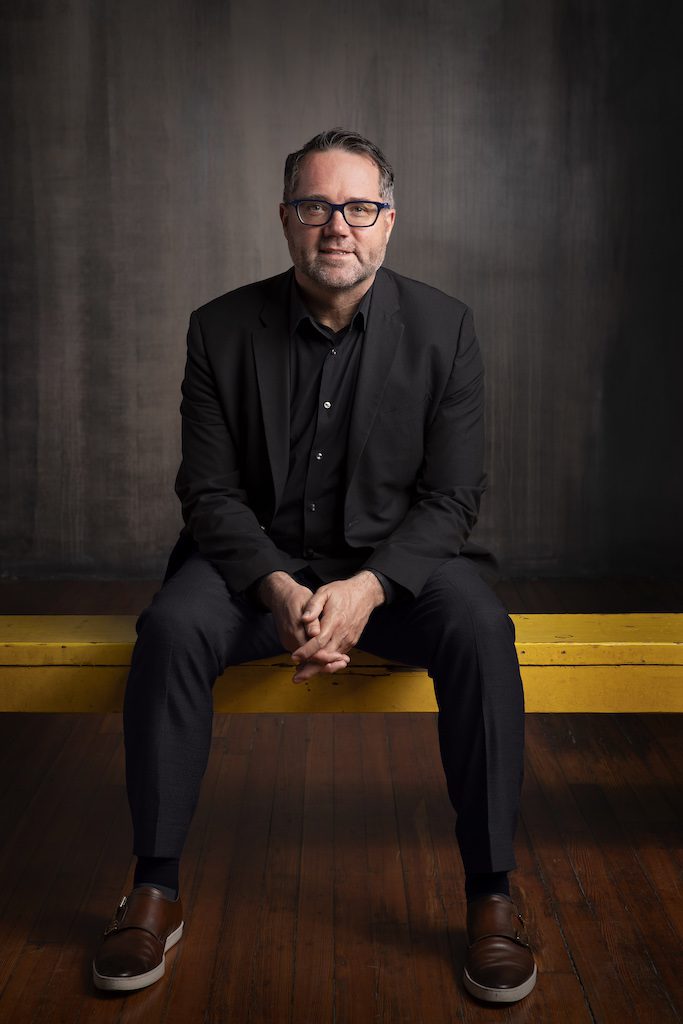Trust isn’t just a nice-to-have. It’s the foundation of every decision, conversation, and result inside your organization. In this article, professional development expert Lyndon Friesen unpacks why building trust is more urgent than ever—and how to lead with clarity, confidence, and connection.
Written by Lyndon Friesen, who leads our Professional Development arm of Outback Team Building, called Ignitor. Over the past 10 years, Lyndon and his skilled team of Facilitators have led over 800 different learning and development events for over 500 different organizations across North America.

Some leaders think trust is an unspoken value. It’s not.
Trust isn’t silent—it’s earned in small, visible ways every day.
It shows up in how we make decisions, delegate authority, and handle conflict. It’s what turns good teams into high-performing ones—and its absence is felt long before it’s acknowledged.
In today’s fast-paced, often hybrid work environment, trust is no longer a passive expectation. It’s an active, ongoing responsibility.
And for leaders, it starts with owning how we build it—and where it breaks.
We Can’t Empower Teams Without Trust—But Most Organizations Try
In today’s workplace, we expect employees to act with autonomy, take ownership of decisions, and move quickly toward shared goals.
But here’s the truth:
You can’t empower someone you don’t trust, and your team won’t take ownership if they don’t trust you back.
Today, we want fast-moving, self-led teams, but we often skip over the hard part: cultivating trust in a world where people are spread across geographies, managing complex workloads, and battling decision fatigue.
Remote and hybrid work make this even harder.
Without the hallway chats, in-person context, or real-time feedback loops we once relied on, trust can quietly erode.
Small miscommunications get amplified. Assumptions fill the gaps. And without visible reinforcement of credibility, empathy, and follow-through, people begin to question what—and who—they can count on.
So, how do we rebuild trust in a new work environment? Let’s start with understanding how trust actually works.
Trust Isn’t What You Think, But It’s Everything Your Team Needs
Here’s a concept that might feel strange to consider:
Trust isn’t just about being trustworthy. It’s about being perceived as trustworthy.
You might know that you’re credible, competent, and consistent, but unless the people around you feel that, it doesn’t matter.
I break trust down into three core components:
- Authenticity: Do I believe you’re real, honest, and congruent?
- Empathy: Do I feel like you actually see me and care about my perspective?
- Competence: Do I trust that you have the expertise or skill to do what you say you’ll do?
When one of those pillars is shaky, I call it a trust wobble. And every leader has one.
For some, it’s competence—people trust your intentions but question your know-how. For others, it’s empathy—you deliver results but miss the human side.
The key is knowing your wobble so you can strengthen it—because the burden of building trust starts with you.
Trust Is Harder to Build Than Ever, But More Essential Than You Think
The speed, complexity, and fragmentation of modern work make trust harder to build—and easier to lose.
In many organizations, employees are navigating hybrid schedules, unclear decision-making rights, and cross-functional projects where it’s not always clear who’s in charge.
Leaders often feel pressure to collaborate more, communicate better, and still hit their goals—all without a strong foundation of trust to support that complexity.
Without trust, none of that works.
You can’t have healthy conflict, clear accountability, or real alignment if trust is missing. And yet most teams don’t talk about it until it’s already broken.
The same goes for collaboration.
When trust is weak, collaboration becomes chaotic—more about appeasement than alignment.
If that sounds familiar, it might be worth revisiting what collaboration actually means in your workplace.
That’s why, in every Positive Team Dynamics session I run, we start with one question:
Not “are you trustworthy?” but “do you know how to generate trust with the people around you?”
Because if you don’t, everything else—from decision-making to collaboration to culture—falls apart.
3 Ways to Build Trust and Empower Your Team
If you want to build a high-trust culture that actually empowers people, it starts with individual reflection and shared responsibility.
Here are three actionable strategies you can use today.
1. Identify Your “Trust Wobble”
Ask yourself: If someone were going to struggle to trust me, which of the three pillars might be the cause?
Those three pillars include:
- Have I been perceived as inauthentic or inconsistent?
- Do I show empathy in my communication and decisions?
- Do people see me as competent in my role and responsibilities?
Better yet, ask your team.
Run a simple, safe conversation where people reflect on which area might be their wobble. You’ll be amazed at how this one question deepens mutual understanding and strengthens team dynamics.
2. Stop Measuring Trust by Intention Alone
Being trustworthy isn’t the same as being trusted.
If you think, “Of course they should trust me! I’ve never done anything wrong!” —you’re focused on your intentions, not your impact.
Trust isn’t built by telling people you’re reliable. It’s built when they experience your reliability.
That might mean:
- Following through on small commitments
- Acknowledging missteps instead of defending them
- Clarifying your reasoning, not just your result
Want to build trust faster? Make your logic visible. Let people see your thought process. It builds credibility and shows respect.
3. Make Trust the Prerequisite, Not the Reward
Too many leaders treat trust like something you earn over time. But that mindset creates a culture of hesitation and micromanagement.
What if, instead, trust was the starting point?
That means:
- Delegating with real authority, not just task lists
- Letting experts lead in their domain
- Backing people publicly before they “prove” themselves
When you extend trust early, you signal belief in your team. That belief becomes a self-fulfilling prophecy.
And yes, sometimes you’ll get burned. But more often than not, your team will rise to the level of trust you extend.
Want to Help Your Team Build Trust From the Ground Up?
Trust isn’t soft. It’s strategic.
If you want faster decisions, stronger collaboration, and better business outcomes, trust has to come first.
Here are a few sessions I recommend from Outback’s Professional Development programs to help your team put these ideas into practice:
- Positive Team Dynamics: Build psychological safety and shared trust to unlock better communication, decision-making, and accountability.
- Emotional Intelligence: Improve empathy and self-awareness to strengthen team trust and personal leadership.
- Confident Decision-Making: Empower individuals to make strong, clear decisions without constant oversight.
- Clear Communication: Build the trust that comes from clarity, consistency, and credibility in every interaction.
Trust is the foundation. Empowerment is the outcome. Your team deserves both.
As a leader, it’s on you to help them get there.
Build a culture of trust within your organization.
Get in touch with our Employee Engagement Consultants today to learn about Professional Development sessions that help build trust and support stronger, more cohesive teams.



